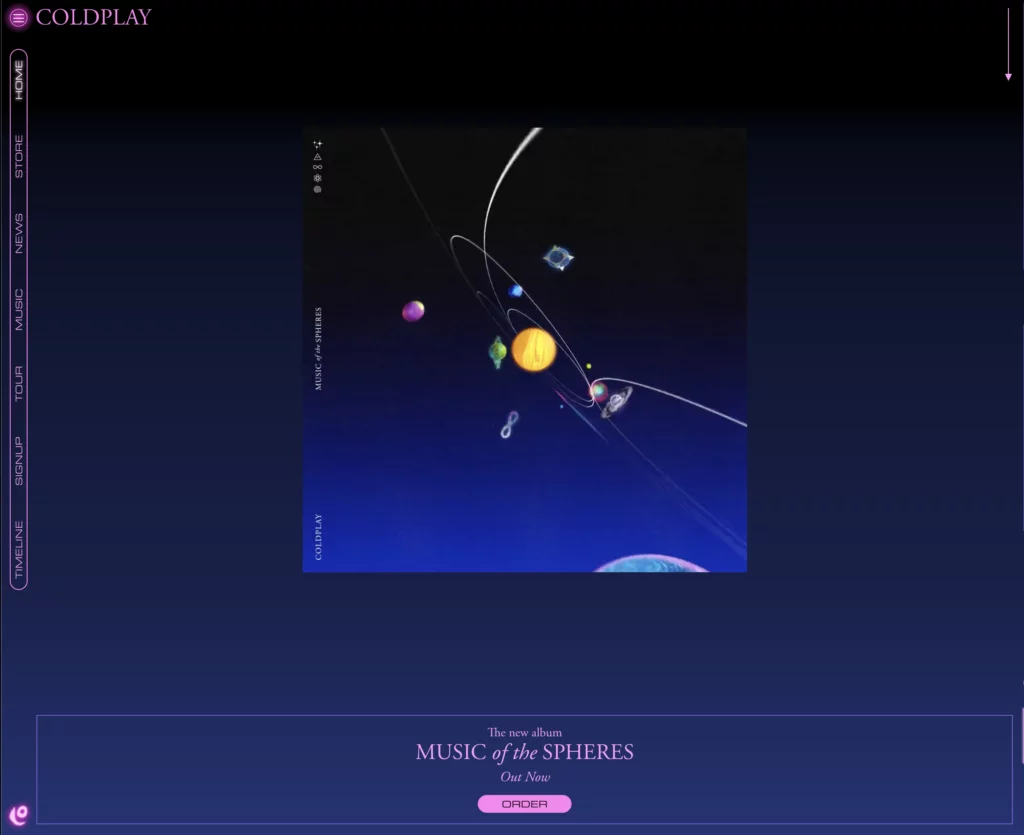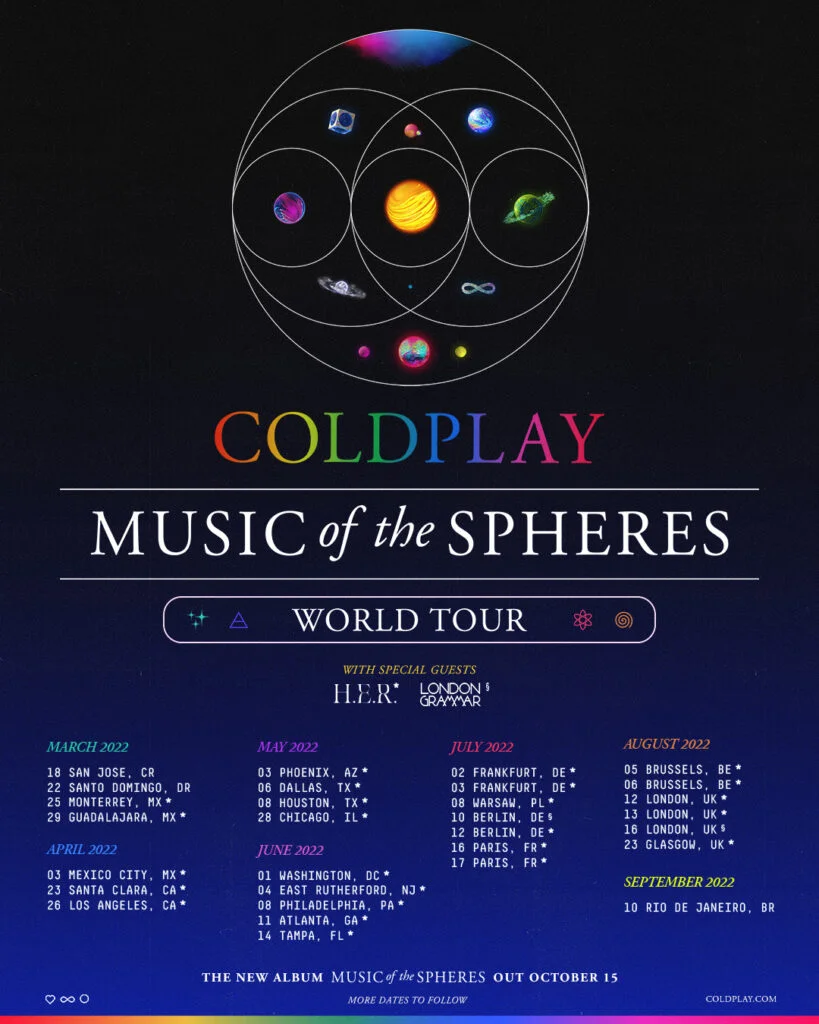Have you ever listened to a song and felt like it perfectly captures a moment or emotion in your life? Coldplay has a way of doing just that with their powerful lyrics and captivating melodies. In this blog, we delve into the intriguing topic of “You Know How I Know You’re Gay Coldplay” – a phrase that has sparked curiosity and debate among fans and critics alike. Join us as we explore this enigmatic expression’s origins and unravel its meanings. From analyzing the song lyrics to examining the cultural implications, we aim to illuminate this intriguing musical mystery.

Introduction: Exploring the Mystery Behind “You Know How I Know You’re Gay Coldplay”
Many individuals are puzzled by the origin and meaning of the phrase “You Know How I Know You’re Gay Coldplay. ” The phrase has gained popularity in recent years, particularly in online forums and social media platforms.
The Origin of the Phrase
The phrase’s origin can be traced back to a comedy film released in the mid-2000s, where it was used as a comedic punchline. Since then, it has found its way into popular culture and internet memes, sparking curiosity and discussions among netizens.
One theory suggests that the phrase gained traction due to its quirky and unexpected nature, making it memorable and shareable across various online communities.
Internet Culture and Memes
With the rise of internet culture and meme-driven content, phrases like “You Know How I Know You’re Gay, Coldplay” have become common fodder for online jokes and humor. The phrase’s cryptic and nonsensical nature adds to its appeal, allowing individuals to use it light-heartedly and playfully.
Popular social media platforms have further fueled the spread of this phrase, with users creating their own variations and interpretations, contributing to its viral nature.
Understanding the Term: What Does “You Know How I Know You’re Gay” Mean?
“You Know How I Know You’re Gay” is a phrase that gained popularity from the movie “The 40-Year-Old Virgin.” The phrase is used humorously to mock someone’s behavior or actions that may be perceived as stereotypically gay or effeminate. It’s important to note that this phrase is intended as a joke and should not be taken seriously or used to offend anyone.
The Context of the Phrase
In the movie, the character David (played by Paul Rudd) repeatedly uses this phrase to tease and joke with his friends. The humor in the phrase comes from the absurdity of claiming to know someone’s sexual orientation based on trivial and unrelated actions or preferences.
It’s essential to understand that the use of this phrase is purely comedic and should not be used to discriminate against or judge individuals based on their sexual orientation.
Comedy and Stereotypes
Comedy often relies on stereotypes and exaggerations to create humor. This phrase is an example of how comedy can push boundaries and challenge social norms, but it should always be approached with sensitivity.
Stereotypes: It’s crucial to be aware of the harmful impact that stereotypes can have on individuals. Using stereotypes, even in a comedic context, can perpetuate negative biases and misconceptions.
Decoding Coldplay: Analyzing the Music and Lyrics of the Band
Coldplay, known for its emotionally charged lyrics and captivating melodies, has amassed a devoted following worldwide. One of their popular songs, “You Know How I Know You’re Gay” by Coldplay, delves into themes of self-discovery and introspection, resonating with listeners profoundly.
View this post on Instagram
The Evolution of Coldplay’s Sound
Since their debut in the late ’90s, Coldplay has undergone a remarkable evolution in their sound. From the ethereal melodies of “Parachutes” to the anthemic tracks of “A Head Full of Dreams,” the band has consistently pushed the boundaries of their music.
Their ability to seamlessly blend pop, rock, and electronic genres has contributed to their enduring appeal.
Lyrical Depth and Symbolism
Coldplay’s lyrics are known for their poetic depth and rich symbolism. They often explore themes of love, loss, and hope. In “You Know How I Know You’re Gay,” the band cleverly crafts a narrative that challenges societal norms and celebrates individuality.
- Using metaphors and metaphysical imagery adds layers of meaning to their songs.
- Chris Martin’s poignant vocals infuse each lyric with raw emotion, connecting with listeners personally.
Exploring Misconceptions: Delving into the Perception of Coldplay and its Audience
There have been misconceptions about Coldplay and its audience, especially concerning the phrase, “You Know How I Know You’re Gay, Coldplay.” However, delving deeper reveals a more nuanced reality.
Breaking Stereotypes
Contrary to popular belief, Coldplay’s music appeals to a diverse audience, transcending any singular demographic. Fans of all genres and backgrounds appreciate the band’s heartfelt lyrics and melodic tunes.
Moreover, the band’s global success and numerous accolades testify to their widespread appeal.
Connecting through Music
Music can unite people, and Coldplay exemplifies this with their emotionally evocative songs that resonate with listeners personally.
- Their live performances create an immersive experience that fosters a deep connection between the band and their audience.

Impact and Influence: How Coldplay’s Music Shapes Culture and Society
When discussing the impact and influence of Coldplay’s music on culture and society, it’s essential to recognize the band’s ability to connect with listeners on a deep emotional level. The music of Coldplay transcends borders and genres, resonating with people from all walks of life.
The Evolution of Coldplay’s Sound
Over the years, Coldplay has evolved its sound, blending elements of alternative rock, pop, and electronic music to create a unique sonic landscape. This sonic evolution has played a significant role in shaping the modern music scene.
Coldplay continues to innovate and push boundaries with each album release, inspiring a new generation of musicians and artists.
The Global Reach of Coldplay’s Message
Coldplay’s music carries messages of love, hope, and unity, resonating with fans worldwide. Through its lyrics and melodies, Coldplay addresses universal themes that transcend cultural and linguistic barriers.
- Collaborating with artists, you know how I know you’re gay Coldplay from diverse backgrounds,
- Engaging in philanthropic initiatives,
- Participating in global events,
- Advocating for social causes,
Image: Coldplay Concert Crowd in 2022
The Fanbase Connection: Building Relationships Through Music
Music has a unique ability to create emotional connections and forge relationships between artists and their fanbases. In the case of You Know How I Know You’re Gay Coldplay, fans of Coldplay are not just passive listeners but part of a dedicated community that shares a deep love for the band’s music.
The Power of Music in Building Connections
Music serves as a universal language that transcends boundaries and brings people together. Coldplay’s music, with its heartfelt lyrics and captivating melodies, resonates with fans personally, creating a sense of belonging and camaraderie.
Engagement Through Live Performances
Attending Coldplay’s concerts provides fans with an immersive experience, allowing them to connect with the band members on a more intimate level. The euphoria of live music fosters a strong bond between the audience and the performers, further solidifying the fanbase.
Behind the Scenes: Unraveling the Mystique of Coldplay’s Success
Coldplay’s success can be attributed to a combination of musical talent, innovative sound, and a loyal fan base. But what truly sets them apart is their ability to evolve and adapt to the changing music landscape.
The Early Years
Formed in 1996 at the University College London, Coldplay initially struggled to find its unique sound. However, with the release of their debut album “Parachutes” in 2000, they quickly gained recognition.
View this post on Instagram
Breaking Through
With hits like “Clocks” and “The Scientist,” Coldplay solidified their position as one of the top bands in the 2000s. Their ability to blend rock and pop elements resonated with audiences worldwide.
The year 2008 marked a significant milestone for Coldplay with the release of their album “Viva la Vida or Death and All His Friends,” which won multiple Grammy Awards.
Frequently Asked Questions
- What is the meaning behind the title ‘Unlocking the Mystery: You Know How I Know You’re Gay Coldplay’?
- The title seems to be a playful reference to the Coldplay song ‘You Know How I Know’ and the phrase ‘You’re Gay,’ possibly exploring the themes of mystery and perception in the song’s context.
- Is this blog post related to Coldplay in any way?
- While the title references a Coldplay song, the content of the blog post may or may not directly discuss or involve Coldplay. The title could be a creative choice to grab attention or set the tone for the post.
- What can I expect to learn from the blog post with this title?
- The blog post may delve into topics related to perception, identity, music, or mystery, potentially analyzing the use of language and cultural references to convey deeper meanings. It could spark thoughts and discussions on various themes.
- Who is the target audience for this blog post?
- The blog post could appeal to individuals interested in pop culture references, music enthusiasts, those intrigued by intriguing titles, or readers looking for engaging content that combines creativity with thoughtful insights.
conclusion
As we unravel the intriguing connection between the phrase “You know how I know you’re gay” and Coldplay, it becomes evident that popular culture can often intertwine with unexpected meanings. This blog delved deep into the origins and interpretations of this peculiar phrase, shedding light on its evolution in different contexts.
By exploring the nuances of language and cultural references, we discovered how perceptions can shift over time. This is a reminder that words carry weight and can shape our understanding in diverse ways.
Ultimately, juxtaposing these seemingly disparate elements serves as a testament to the complexity of human expression and the ever-changing nature of symbolism.






